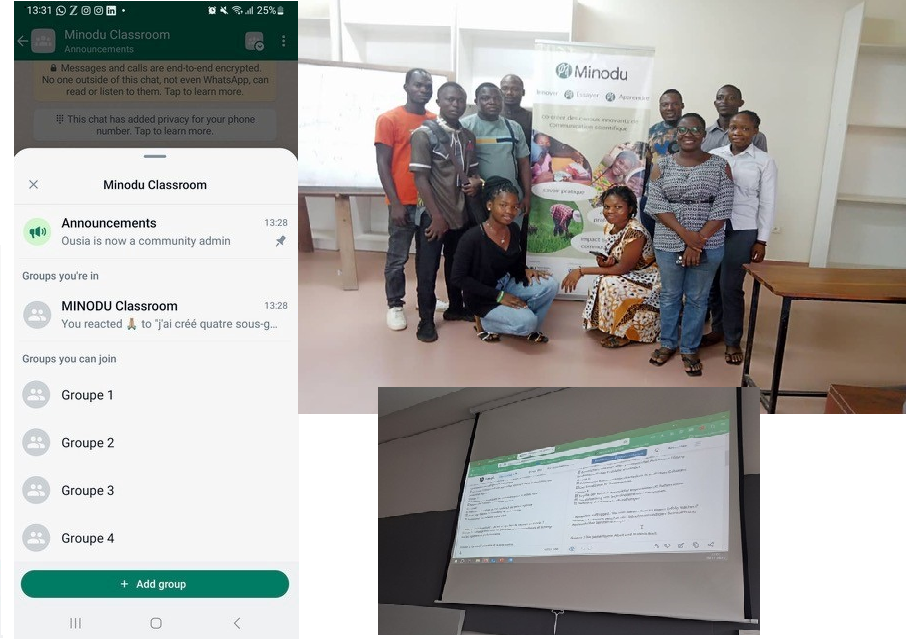The classroom remains the most radical space of possibility in the academy. [...] Urging all of us to open our minds and hearts so that we can know beyond the boundaries of what is acceptable, so that we can think and rethink, so that we can create new visions, I celebrate teaching that enables transgressions - a movement against and beyond boundaries.
With this in mind, we embarked on the special journey of our hybrid collaborative university course “From Theory to Action: Addressing Climate Change Through Design” on 8 November. As part of the Minodu project the course will be held simultaneously at the University of Kara, Togo and the University of the Arts in Berlin, Germany over the winter semester 2023/24. Once a week, a total of 16 students from both institutions (8 each) will meet for two hours to work together on innovative communication formats for agricultural knowledge and its adaptation to climate change. Along that way, we will constantly be looking for ways to unite the students despite their differences in terms of language, place, and disciplinary background and thus move beyond boundaries. One exciting question for us is the potential of AI in building such bridges between the different worlds.

The first session of the course was already a complete success: At the beginning, the project team and the project idea were introduced to the students independently at each location, and they were given time to get to know each other and discuss their expectations. The students in Kara articulated, among other things, that they would like to learn rural communication techniques and how to use AI tools, as well as, how they can use a holistic approach to solve agricultural challenges. Furthermore, they hope to deepen cultural relations. Meanwhile, the predominant questions in Berlin were how to approach climate change through design, how to get an insight into local realities, and how to create ideas effectively through remote connections. The students also expressed the wish to discover other perspectives on global issues and to have an idea of the impact that design can have, as well as to create a feasible project by learning about intercultural communication and the co-development of ideas. They then started directly with the latter when they had the opportunity to connect and exchange ideas with the students from the other university. A first, very simple, and yet efficient AI-driven solution was used: the exchange was translated by an AI translation software.
We envision our classroom as a melting pot of innovation and collaboration, and we are really looking forward to the joint work in the following months. Let’s see what can be created in such an alternative learning setting!